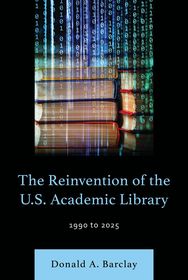
The Structures of STEM Education
A Macro, Meso and Micro Analysis of Learning Outcomes
Series: Routledge Research in STEM Education;
- Publisher's listprice GBP 145.00
-
69 273 Ft (65 975 Ft + 5% VAT)
The price is estimated because at the time of ordering we do not know what conversion rates will apply to HUF / product currency when the book arrives. In case HUF is weaker, the price increases slightly, in case HUF is stronger, the price goes lower slightly.
- Discount 10% (cc. 6 927 Ft off)
- Discounted price 62 346 Ft (59 378 Ft + 5% VAT)
Subcribe now and take benefit of a favourable price.
Subscribe
69 273 Ft

Availability
Not yet published.
Why don't you give exact delivery time?
Delivery time is estimated on our previous experiences. We give estimations only, because we order from outside Hungary, and the delivery time mainly depends on how quickly the publisher supplies the book. Faster or slower deliveries both happen, but we do our best to supply as quickly as possible.
Product details:
- Edition number 1
- Publisher Routledge
- Date of Publication 18 December 2025
- ISBN 9781032541549
- Binding Hardback
- No. of pages218 pages
- Size 234x156 mm
- Language English
- Illustrations 54 Illustrations, black & white; 49 Halftones, black & white; 5 Line drawings, black & white; 4 Tables, black & white 700
Categories
Short description:
STEM education is shaped by macro, meso and micro structures that impact curriculum design, teaching practices, and learning outcomes. This book explores three STEM programmes, offering insights for educators, researchers, and policymakers to design, plan and implement effective STEM opportunities that drive transformative education.
More
Long description:
STEM education is shaped by interconnected macro, meso, and micro structures that impact curriculum design, teaching practices, and learning outcomes. This book explores three distinctive STEM programmes, offering practical insights for educators, researchers, and policymakers to design, plan, and implement effective STEM opportunities that drive meaningful, transformative education.
The first programme, Code to Sew, showcases a university-industry-school partnership that bridges the private-public spaces to foster innovative learning. The second programme, EPIC-STEM, takes an ecosystemic approach to building students’ STEM capital through the affordance of multiple epistemic infrastructures—hackathons, consultative STEM inquiry, symposia, internships, and learning journeys—providing a scalable model across local school clusters. The third programme transcends national boundaries, enhancing teachers’ capacities for STEM curriculum development with cognisance and sensitivities to the partnering country’s digital transformation, education reforms, and local needs.
This book is an essential resource for readers from academic or scholarly policy-making backgrounds aiming to gain deeper insights into the interconnected Structures of STEM education and how they shape meaningful, transferable learning experiences for both educators and learners.
"I strongly recommend this volume to researchers, teachers, and teacher educators in STEM education worldwide. This book invites readers to reflect on themselves and their practices as agents operating within the fluid, dynamic, and context-dependent STEM education ecosystem. May it inspire you to reflect, engage, and act with renewed purpose and imagination."
Dr Jina Chang, Assistant Professor, National Institute of Education, Nanyang Technological University, Singapore
"This book provides rich insights into how STEM education practices with different purposes are connected at the three levels, namely narratives at macro-levels, interpretations at meso-levels, and practices or processes at micro-levels. The author provides compelling reasons to consider macro-, meso-, and micro-Structures in the design of systemic STEM programmes."
Dr Aik-Ling Tan, Associate Professor, National Institute of Education. Nanyang Technological University, Singapore
MoreTable of Contents:
List of Figures
List of Tables
Foreword 1
Foreword 2
Foreword 3
Preface
Acknowledgements
Declarations
SECTION A: INTRODUCTION
1. Introduction to STEM education
2. Theoretical Framework
SECTION B: UNIVERSITY-INDUSTRY STEM PARTNERSHIP
3. University-industry partnership in STEM education
4. (Micro) vignettes: Developing understanding about materials
5. (Micro) vignettes: Digital coding and sewing
6. (Micro) vignettes: Digital embroidery and sewing
7. (Macro-meso-micro) Structures of Code to Sew
SECTION B SUMMARY
SECTION C: LOCAL ECOSYSTEMIC STEM EDUCATION
8. Building a local STEM ecosystem
9. (Meso and micro) Structures of the EPIC-STEM hackathon
10. (Meso and micro) Structures of the EPIC-STEM inquiry projects
11. (Meso and micro) Structures of the EPIC-STEM student symposium
SECTION C SUMMARY
SECTION D: REGIONAL STEM EDUCATION
12. (Macro) Structures of STEM education in Asia
13. (Meso) Structures of Indonesia’s education system
14. (Micro) Structures of STEM teacher capacity building in Indonesia
SECTION D SUMMARY
SECTION E: IMPLICATIONS AND CONCLUSION
15. Implications and conclusion
Index
More

Unwinding Bone: A Complete Guide to Biodynamic Skeletal Therapy for Myofascial and Manual Therapists





